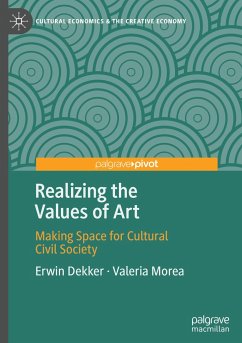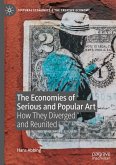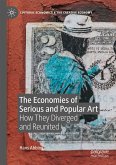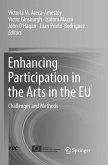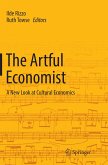This book provides a novel approach to the understanding and realization of the values of art. It argues that art has often been instrumentalized for state-building, to promote social inclusion of diversity, or for economic purposes such as growth or innovation. To counteract that, the authors study the values that artists and audiences seek to realize in the social practices around the arts. They develop the concept of cultural civil society to analyze how art is practiced and values are realized in creative circles and co-creative communities of spectators. The insights are illustrated with case-studies about hip-hop, Venetian art collectives, dance festivals, science-fiction fandom, and a queer museum. The authors provide a four-stage scheme that illustrates how values are realized in a process of value orientation, imagination, realization, and evaluation.
The book relies on an interdisciplinary approach rooted in economics and sociology of the arts, with an appreciation forbroader social theories. It integrates these disciplines in a pragmatic approach based on the work of John Dewey and more recent neo-pragmatist work to recover the critical and constructive role that cultural civil society plays in a plural and democratic society. The authors conclude with a new perspective on cultural policy, centered around state neutrality towards the arts and aimed at creating a legal and social framework in which social practices around the arts can flourish and co-exist peacefully.
The book relies on an interdisciplinary approach rooted in economics and sociology of the arts, with an appreciation forbroader social theories. It integrates these disciplines in a pragmatic approach based on the work of John Dewey and more recent neo-pragmatist work to recover the critical and constructive role that cultural civil society plays in a plural and democratic society. The authors conclude with a new perspective on cultural policy, centered around state neutrality towards the arts and aimed at creating a legal and social framework in which social practices around the arts can flourish and co-exist peacefully.
"The profound contribution of this ... short but wonderful book is a new answer to 'what is art'. ... This is very much still economic analysis, directed to the design of economic policy for the arts. By shifting focus from prices to values, they move the economics of arts from cultural production and consumption to a broader concept of cultural civil society ... . they have set out a new vision for cultural economics. ... this is a monumental achievement." (Jason Potts, Journal of Cultural Economics, Vol. 48 (2), June, 2024)

